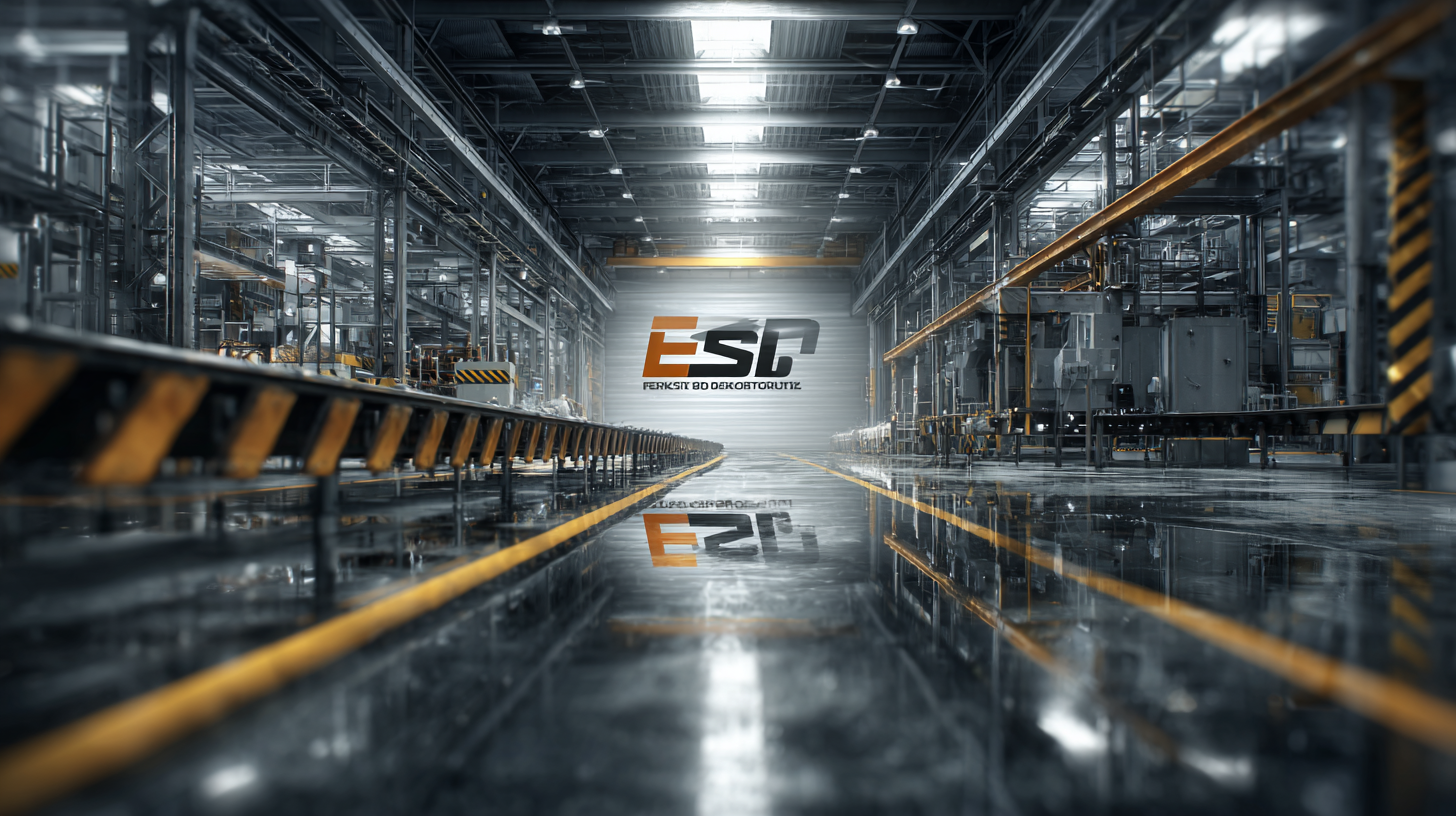
Choosing the Best Factory: Essential Criteria for High-Quality Manufacturing Solutions
In today's rapidly evolving manufacturing landscape, selecting the right factory is crucial for companies aiming to deliver high-quality products while optimizing costs. According to a report by Deloitte, 73% of manufacturers believe that their supply chain processes need significant improvements, highlighting the importance of choosing a factory that aligns with strategic goals. Consequently, decision-makers must consider various factors such as production capabilities, quality control measures, and technological advancements when evaluating potential partners.

Key Factors in Evaluating Manufacturing Quality Standards
When evaluating manufacturing quality standards, several key factors come into play that can significantly impact the overall success of your production processes. One of the primary considerations is the factory's adherence to international quality certifications, such as ISO 9001. These certifications indicate that a factory employs rigorous quality management systems and is committed to continuous improvement.
 Furthermore, factories that regularly undergo third-party audits can provide assurances of their compliance with established quality standards.
Furthermore, factories that regularly undergo third-party audits can provide assurances of their compliance with established quality standards.
Another crucial factor to consider is the staff training and expertise within the factory. Skilled workers who are well-versed in the latest manufacturing technologies and quality control methods contribute to producing high-quality products. Investing in employee training programs not only enhances the factory’s capabilities but also fosters a culture of quality awareness among the workforce.
Additionally, evaluating the factory's track record in meeting deadlines and producing consistent products is essential. A reliable manufacturing partner will showcase a history of timely deliveries without compromising quality, ensuring that your supply chain remains robust and efficient.
Understanding Different Types of Manufacturing Processes and Their Benefits
When selecting a factory for high-quality manufacturing solutions, understanding the various types of manufacturing processes is paramount.
Each process, from additive manufacturing to traditional machining, offers distinct benefits tailored to specific production needs. According to a report from Deloitte, the adoption of additive manufacturing has surged by approximately 30% in the last five years, driven by its ability to reduce material waste and enhance design flexibility.
This process is particularly advantageous for prototyping and low-volume production, enabling companies to innovate quickly.
On the other hand, conventional manufacturing processes such as injection molding and CNC machining remain critical for high-volume production.
A study by Grand View Research indicates that the global CNC machining market is projected to reach $100 billion by 2025, highlighting its efficiency in producing complex geometries at scale.
These traditional methods reduce lead times and ensure consistent quality, making them indispensable for businesses aiming to balance cost-effectiveness with precision.
Selecting the appropriate manufacturing process depends heavily on factors such as production volume, material characteristics, and product complexity.
The right choice can significantly influence time-to-market and overall product quality, ultimately contributing to long-term business success.
Assessing the Importance of Certifications and Compliance in Factories
In today's manufacturing landscape, the significance of certifications and compliance cannot be overstated. Companies striving for excellence must ensure that their manufacturing partners meet stringent industry standards, which not only enhance the quality of their products but also instill confidence in stakeholders. A recent report projected that the smart factory service market is expected to reach substantial growth, emphasizing the need for integrated solutions and adherence to compliance measures in manufacturing processes. This highlights a pivotal shift towards smarter, safer, and more responsible manufacturing environments.
Moreover, recent initiatives in various industries have showcased the increasing importance of certifications. For instance, the issuance of smart symbol grades for the first cylindrical FPSO in Asia signifies that regulatory bodies are enhancing their role in certifying compliance. Similarly, advancements like blockchain-based platforms for certifying automotive parts reflect a broader trend of leveraging technology to achieve compliance and improve traceability in supply chains. As manufacturing enterprises look to not only thrive but also contribute positively to their ecosystems, adhering to recognized certifications is crucial for sustainable development and operational excellence.
The Role of Technology and Innovation in Modern Manufacturing Solutions
In today's fast-paced manufacturing landscape, technology and innovation play a pivotal role in driving efficiency and quality. The integration of advanced machinery and cutting-edge software can significantly streamline production processes. Factories that embrace automation and smart technologies often experience reduced downtime and increased output, leading to improved overall performance. Investing in these innovations is crucial for staying competitive in the global market.
Tip 1: When selecting a manufacturing partner, assess their technological capabilities. Look for factories that utilize the latest manufacturing technologies, such as robotics, AI, and IoT. These tools not only enhance productivity but also enable greater precision and consistency in production, ensuring that the final products meet high-quality standards.
Another key aspect is adaptability. A factory that prioritizes innovation is more likely to adjust quickly to market changes and customer demands. This flexibility can lead to quicker turnaround times and the ability to manage custom orders effectively.
Tip 2: Prioritize factories that actively seek out and implement new technologies. Inquire about their approach to continuous improvement and innovation culture. A factory that encourages creativity and invests in research and development is better equipped to deliver high-quality solutions tailored to your needs.
How Supplier Relationships Can Impact Quality and Efficiency in Production
Supplier relationships play a crucial role in determining the quality and efficiency of your manufacturing processes. Establishing strong partnerships with reliable suppliers can lead to better communication, streamlined processes, and ultimately enhance product quality. In 2025, fostering these relationships will be more important than ever, as companies strive to meet ever-increasing customer demands and expectations.

Tips for Building Effective Supplier Relationships:
1. Regular Communication: Maintain consistent and transparent communication with your suppliers. This not only helps in addressing any issues promptly but also builds trust and understanding, which are essential for effective collaboration.
2. Set Clear Expectations: Clearly define quality standards, timelines, and performance metrics from the outset. This clarity helps both parties align their goals and reduces the likelihood of misunderstandings that can jeopardize production quality.
3. Engage in Continuous Improvement: Encourage suppliers to embrace Total Quality Management (TQM) principles. This commitment to continuous improvement in quality and efficiency can lead to innovative solutions that benefit all stakeholders involved.
By focusing on these aspects, businesses can leverage their supplier relationships to significantly boost quality and efficiency in production, aligning with TQM practices to enhance overall customer satisfaction.



